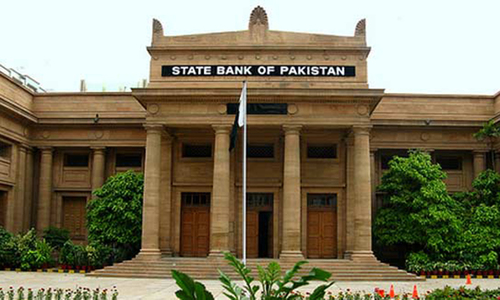KARACHI: As assemblers have advance booking orders for the next four to five months, the State Bank of Pakistan’s recent decision of putting brakes on booming auto financing and curbing import of vehicles is unlikely to have any immediate impact on auto sales.
Auto financing plays a key part in determining auto sales as it contributes around 30-40pc of the total sales in the country. One key factor in driving auto financing is low Kibor rates (benchmark lending rates), which in a rising trend could negatively impact auto sales.
Auto financing had increased to record Rs326bn, up 47pc year-on-year, as of Aug 31, 2021. The 6-month Kibor rate stood at 7.54pc at the end of August and since then it has risen by 62bps to 8.35pc as of Oct 15.
A Korean auto assembler said the impact of the central bank’s decision would not come before next year as currently all the models are sold out for the next three to four months.
A dealer said that Toyota Yaris is being delivered in two to three months, while Toyota Fortuner and Corolla models take up to six months if booked today. “The situation is so far normal in view of already booked and ongoing delivery of vehicles which had been booked a few months back. The market will see the impact after a few months,” he said.
Another dealer claimed said the booking of Honda vehicles have slowed down by at least 50pc after the SBP’s decision. However, he said the delivery time of Honda BR-V and Honda Civic is December and February next year. Honda Aspire’s delivery time is March next year while other City models will be handed over to the customers by January in case they are booked today.
Head of Research at Pak Kuwait Investment Company Samiullah Tariq said: “As all models are booked and financing is already approved, I think after three months, the auto market and the assemblers will see the impact of the State Bank’s decision.” He said that new financing has been blocked and its impact would be viable after three months.
Tahir Abbas, Head of Research at Arif Habib Ltd, was of the view that auto assemblers may not witness any major shutdown in sales volume in the short-term during FY22 due to rising auto demand, backlog and low interest rates as current delivery time of automobile ranges between three to six months.
“I think the SBP’s decision to curb auto financing will start impacting sales from the start of FY23,” he opined.
According to Sherman Research, the recent tightening measures for financing of locally-assembled vehicles having more than 1,000cc engine capacity and other consumer finance facilities may taper off car demand gradually while ongoing supply-side issues may also hamper sales figures, which started to emerge by the end of CY2021.
The SBP has reduced the period of auto financing from seven to five years, debt to burden ratio from 50pc to 40pc, aggregate financing limit to be availed by one person from all banks should not exceed Rs3 million at any point in time, and minimum down payment for auto financing increased from 15 to 30pc. These measures are applicable to imported vehicles and locally manufactured vehicles with an engine capacity of over 1,000ccc.
Umair Naseer of Topline Securities said out of the total car sales, around 49pc of the sales are of over 1,000cc. Honda Car is likely to be hit most by these measures as auto financing contributes around 45-48pc of their total sales, he said, adding that auto financing contributes around 25-30pc of the total sales for Indus Motor Company (IMC), the assembler of Toyota vehicles, as 50pc of its sales come from rural areas.
The SBP on Sept 20 increased its policy rate by 25bps to 7.25pc citing rising import bill and current account deficit as key concerns.
Along with higher lending rates, the SBP measures to moderate consumer financing also do not bode well for the sector, he said.
Published in Dawn, October 17th, 2021














































